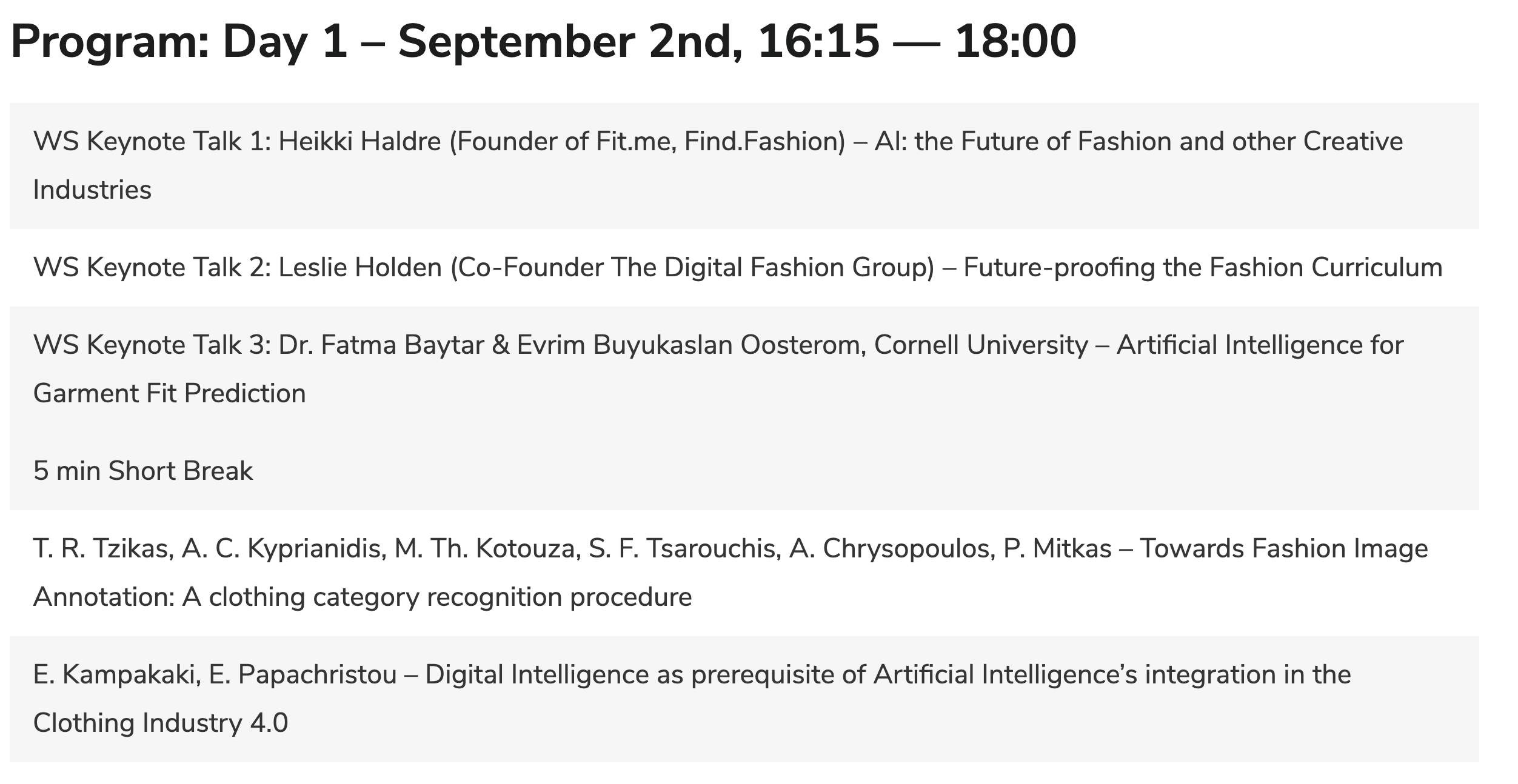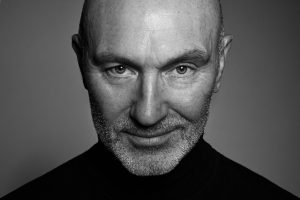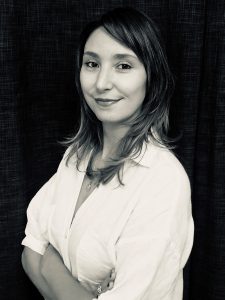Workshop Program

Main Conference program
If the program does not appear correctly, you can download it, using the following link:
KEYNOTE SPEAKERS
- Keynote Speaker —Mark Harrop, CEO & Founder, WhichPLM & The Interline

Mark Harrop is a fashion technology industry figurehead, with over 4 decades’ experience in manufacturing, designing, selecting and implementing a broad range of solutions, including CAD/CAM, PDM, CPM, PLM, 3D amongst many other digital firsts!
Mark’s storied career in Fashion has seen him fill roles as Cutting Room Manager, Work Study Engineer, Production Director, and, today a digital fashion advisor, speaker, writer and blogger. Mark has established himself as a fashion thought leader in technology education and is a frequent expert speaker on digital solutions for the retail, footwear, textiles and apparel industries.
Founded in early 2008, WhichPLM is a digital magazine and analyst firm dedicated to PLM for Fashion. With articles, interviews, tools, publications, and direct advisory services, WhichPLM has since become the first port of call for any savvy retailer, brand or manufacturer seeking to understand these technologies without the usual “marketing spin”.
Today, Mark is considered a trusted advisor to many of the world’s leading retailers, brands and manufacturers. Leveraging his and his team’s expertise in the field of fashion and the brand recognition of WhichPLM and more recently The Interline, he delivers exhaustively researched and expertly informed online education to today’s retail technology professionals. Mark uses best practice, scientific maturity measurements to deliver measurable results to his clients. Specialising in a range of processes and use-case knowledge to help define the ‘how’ of new technologies including: Trend, Voice of the Customer, Merchandise & Assortment Planning (Financial & Graphical), Creative Design, 2D & 3D, Product Development, Costing, Sourcing, CSR (Corporate Social Responsibility), Supply Chain Collaboration, Material Platforms, Blockchain, Internet Of Things & Ind’s 4.0, A.I. & M.L. amongst the ever growing list of new technologies that are entering the fashion sector.
- Keynote Speaker — Leslie Holden MDes(RCA)FRSA, Co-Founder The Digital Fashion Group

Future-proofing the Fashion Curriculum
Fashion, is about the new, but on the whole it is not innovative. The fashion system is an old business model , embedded in nineteenth century tailoring and manufacturing processes which in turn, and for the most part, (in)forms the contemporary fashion curriculum. Despite being rooted in an old business model, AI is now fundamentally transforming the fashion industry from the way that companies design and manufacture their products to the way they are marketed and sold. It can manage a task, source a product, or predict a style quicker and more efficiently than any human . The more practice, the more reliable it can become. The power of AI is maximized through the creativity and imagination of their users and will be less likely to replace jobs that require creativity or originality. From this perspective one may argue that fashion designers are unlikely to be out of work anytime soon. However, fashion education is currently not reflecting, nor facilitating learning to support these advances of technology and therefore excluding future fashion designers from the data dialogue.
Leslie Holden, as Head of Fashion & Design at the Amsterdam Fashion Institute (AMFI) and a member of the amfi board for over 14 years, was responsible for the redevelopment of the international curricula focussing on digitalisation and sustainability in fashion. Instrumental in establishing the ground-breaking “Hypercraft” minor where students immerse themselves in the world of 3D Virtual designing, and the first AMFI Master award, MA Fashion Enterprise Creation, he grew the international recognition and standing of the school as a centre of excellence for fashion teaching and research.
Being a design director and entrepreneur with over 20 years’ experience in the fashion industry for such companies as Dunhill, Stefanel, Byblos, Burberry and Liberty, he has extensive knowledge of the international luxury market and the relationship of education to business.
Leslie sits on the Steering Committee of The EU Worth Partnership Project, and is an EU expert for the creative industries. He was for many years an Executive Board member of the International Foundation of Fashion Technology Institutes (IFFTI), and a trustee of The UK Graduate Fashion Foundation, and has been a guest speaker at many major education and creative conferences.
- Keynote Speakers — Dr. Fatma Baytar, Cornell University & Dr. Evrim Buyukaslan, Istanbul Bilgi University
Artificial intelligence for garment fit prediction
Artificial intelligence (AI) has the potential to transform the apparel industry practices and help provide the right products to consumers. Garment fit is one of the most important and complex factors that determines consumers’ purchase decisions when shopping for an apparel product. Making such decisions especially becomes more complicated in the context of online shopping due to the lack of touch or feel to assess the comfort or functional aspect of garment fit. In order to assist consumers, current AI offerings in online shopping focus on style recommendations. Yet, virtual try-on is also an evolving area in online shopping and must be examined through the lenses of AI within the framework of garment fit prediction

Dr. Fatma Baytar is an Assistant Professor in the Department of Fiber Science and Apparel Design at Cornell University. Dr. Baytar is cross-trained in textile engineering and apparel design, and has extensive research and teaching experiences in using 3D body scan data and 3D apparel simulations to improve apparel sizing and fit, and examine 3D and AR technology use in online shopping. Her research foci are two-fold. The first is on developing new tools and methods for achieving seamless digitalization of new product development in the apparel industry. The second is on educating workforce on using 3D digital technologies. Dr. Baytar has conducted research in the areas pertaining to the use of 3D technologies in determining sizing and fit of protective apparel, virtual fit, virtual avatars and body image issues, AR applications for virtual dressing rooms, impact of using 3D virtual prototyping on design skills, and digital technologies’ potential impact on environmental sustainability. Her research findings have been disseminated in major peer-reviewed journals, and presented at international conferences.

Dr. Evrim Buyukaslan Oosterom graduated from Istanbul Technical University (ITU) as a textile engineer in 2007. After graduation, she worked as a merchandiser in H&M and HTL Fashion companies for three years. During her industry experience, she obtained an M.Sc. degree in Polymer Science and Technology (ITU). In 2019, Dr. Buyukaslan Oosterom obtained her Ph.D. in Textile Engineering (ITU) with her dissertation titled: “Exploring Consumers’ Virtual Garment Fit Satisfactions to Predict Their Actual Satisfactions”. She received a federal grant from the Scientific and Technological Research Council in Turkey (TUBITAK) to support her data collection at Cornell University’s 3D Body Scan Lab in 2018-2019. Since 2019, Dr. Buyukaslan Oosterom works as Assistant Professor in Istanbul Bilgi University Fashion Design Department and instructs courses on flat pattern making, CAD systems for pattern making, 3D garment simulation, and fashion buying & merchandising. Her research interests include garment fit, garment simulations, 3D body scanning, consumers’ interaction with 3D apparel technologies, and artificial intelligence for fashion and textile applications.

